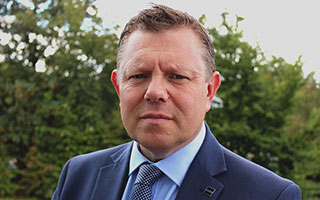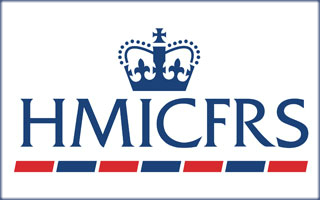
National Chair John Apter
“It is time for police leaders and the Government to take brave decisions to enable policing to provide the service the public expect and deserve” - that’s the message from the National Chair of the Police Federation of England and Wales John Apter as Her Majesty’s Inspectorate of Constabulary Fire and Rescue Services (HMICFRS) publishes its State of Policing Report 2018.
Although the report concludes that forces are still managing to perform well and continue to deliver high-standards of policing despite the backdrop of austerity, it acknowledges some are straining under significant pressure, trying to meet complex and growing demand with reduced resources.
The report – authored by Her Majesty’s Chief Inspector of Constabulary Sir Tom Winsor - praises the dedication and bravery of officers for putting put themselves in harm’s way to protect the public, but it acknowledges that since last year’s inspection, pressure on officers has continued to mount, leading to widespread poor mental health.
Sir Tom also criticised the wider Criminal Justice system calling it “dysfunctional and defective”, and highlighted the growing mismatch between police funding and public expectations.
Responding to the report Mr Apter said: “This just underlines what many of us involved in policing already know – that it is the dedication and a sense of duty of hard-working officers that keeps the police service running.
“We welcome the fact that the report does not shy away from a lot of the difficult questions about policing, its future and how it should be funded. Many of the themes echo what the Federation has been saying for years, and while it does not focus solely on policing numbers, you just cannot ignore the elephant in the room, namely that we now have 22,000 fewer officers than we did in 2010,” he said.
“It’s also right that the report highlights issues with the police funding formula, where the Home Office have been dragging their feet over a review of the formula for the past four years. This has led to inequalities between the way different forces are funded and having to juggle their resources to try and provide a policing service to protect the public and communities at a time when crime, especially violent crime is rising significantly, and the murder rate is at a ten-year high.”
Sir Tom also called for an overhaul of the way the police service in England and Wales is structured – questioning if the traditional 43-force model is still fit for purpose. And he said Government and Chiefs needed to look at the bigger long-term picture when they decided how to allocate money to forces.
Mr Apter continued: “Short-termism doesn’t work – forces need certainty, stability and predictability to plan for the long term and make best use of their resources. We currently have a broken service where over-stretched officers are robbing Peter to pay Paul and are rushed off their feet trying to keep up with a horrific explosion of crime at a time when funding is down by 19% in real terms since 2010.
“There aren’t enough boots on the ground, our officers are getting burnt out just trying to keep up with demand and something has to be done about it now. Government needs to look at this report as a wake-up call – Mr Winsor is the most senior Inspector in the land and he is telling them that there is a real problem, which needs sorting out,” he said.
“In many ways, this report is a breath of fresh air. It recognises that there are some difficult conversations to be had. MPs and Government need to take a long, hard look at the levels of funding they are willing to provide and recognise that, quite simply, if funding does not keep pace rising demand, they are going to have to revise those expectations. There is no magic policing wand – it’s a case of difficult choices and the Government being honest about what it is prepared to pay for.”
The HMICFRS report comes in the wake of Boris Johnson’s announcement that he will hire an extra 20,000 police officers by the end of 2022 if he wins the Conservative Party leadership race.
In response Mr Apter said: “I welcome Mr Johnson’s plans and there has been nothing similar over past decade – but I am cynical as there have been so many broken promises over the years from Home Secretaries and Prime Ministers. My colleagues and I will hold him to his promises.
“The cuts have been disastrous and have broken policing, so we need something and need something now, and the next leader must put the service at the top of their agenda and do something tangible. Enough with warm words, we need a real investment to fix the state the service has been left in,” he concluded.
Other highlights of the HMICFRS report included:
- Recent research by Cambridge University revealing that 1 in 5 serving police officers and staff have a form of post-traumatic stress disorder
- A call for further investment in IT and new policing technology otherwise forces ‘run the risk of playing catch up’ with criminals
- While recognising increasing use of technology and digital devices also lead to more complex investigations because of the length of time and additional training needed to forensically interrogate systems
- The fact that the delay of the long-awaited Emergency Services Network was also putting more cash pressures on forces
- Emphasis that many more intervention and preventative measures were needed to break the cycle of crime which all too often sucked in the young and vulnerable – but this was increasingly difficult with a lack of resources
- So-called ‘one-off’ incidents like terror attacks, the Novichok poisoning in Salisbury, Gatwick drone incident, Brexit and climate change protects and policing around events such as President Trump’s State visit piled additional pressure on an already-creaking service
- Dealing with vulnerable people suffering from mental health issues was also on the rise as other services and agencies such as social care, youth teams and the NHS also suffered budget cuts














